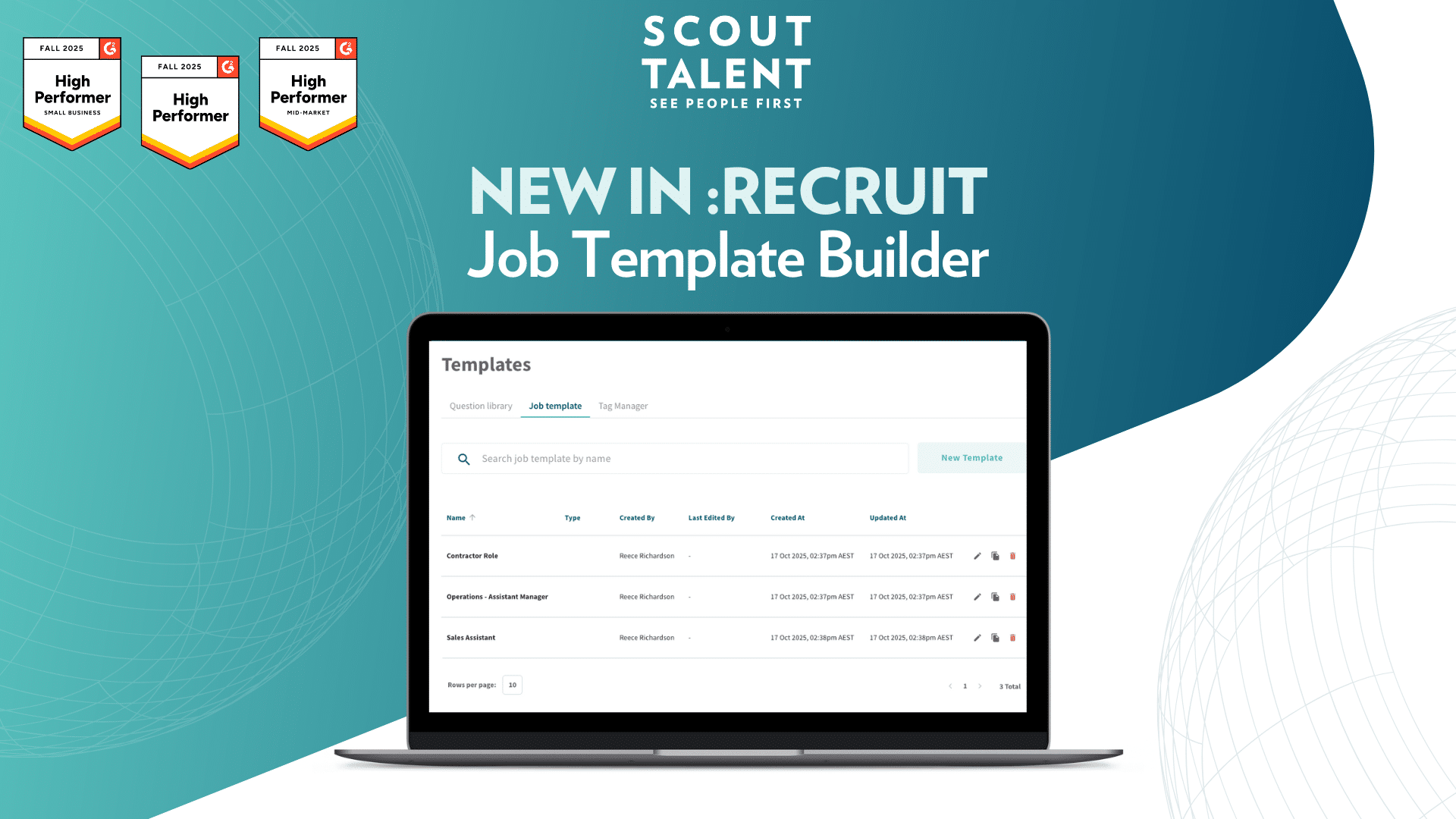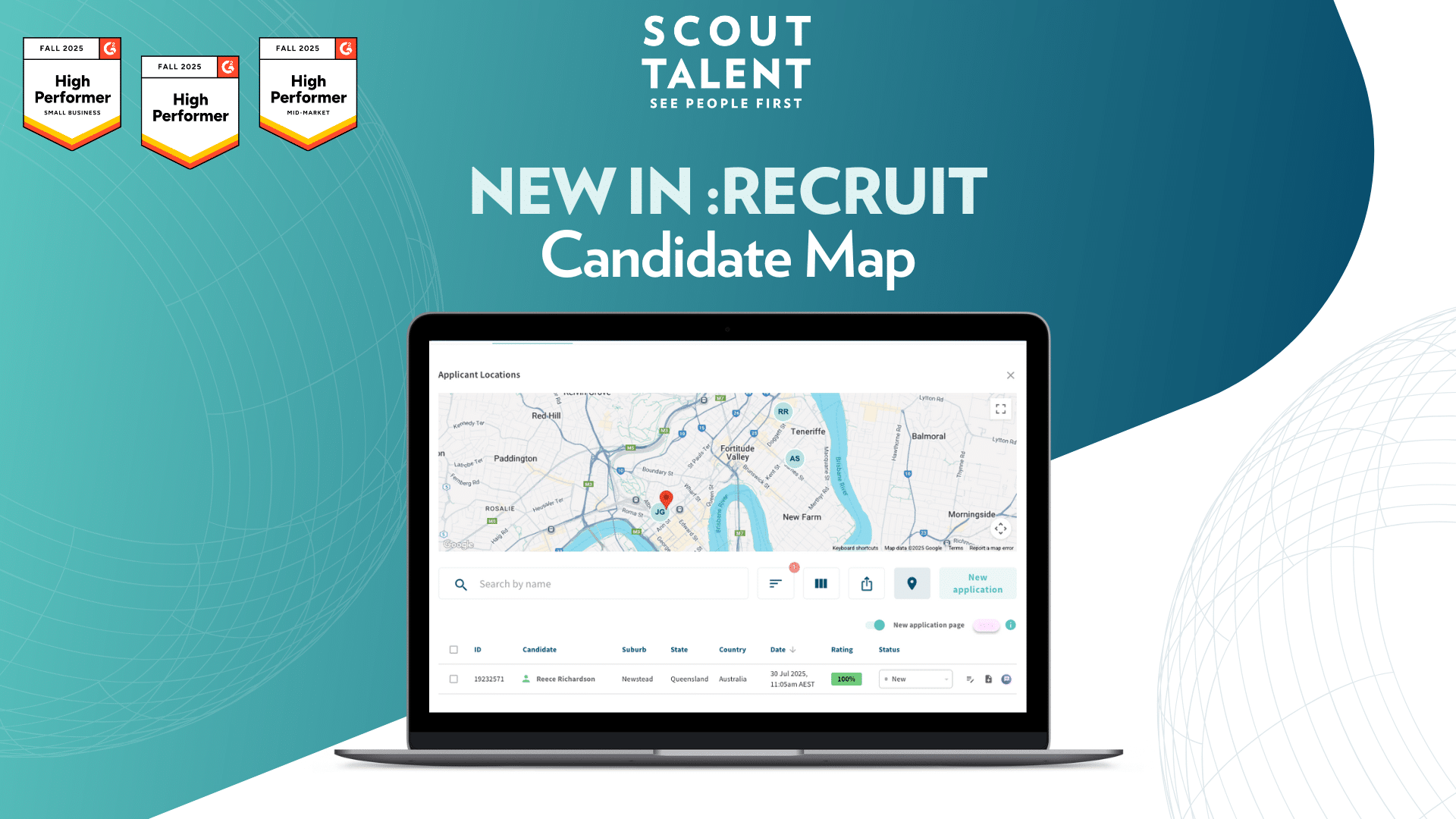When it comes to recruiting the best candidates, making an effective recruitment decision is not always easy. Perhaps you’re a hiring manager attempting to figure out which of your shortlisted candidates adds the most value to your organization. You might be a recruiter attempting to put that shortlist together at all for your manager’s feedback. Either way, it can be difficult to ensure we’re looking at candidates through the right lens. And how can we be sure that we’re getting the information we need to make the best decisions?
Tips from experts in recruitment
Below are some tips and strategies that our recruitment experts at Scout Talent use to support our own decision-making and support our hiring managers in making theirs.
Don’t go chasing unicorns
A key objective at the start of every recruitment campaign is ensuring that everyone is on the same page. You need to establish the difference between the essential minimum criteria and the desirable, flexible criteria. For example, experience in residential construction project management versus niche experience with a specific type or project.
That might sound simple, but often we end up in situations where different stakeholders have different weights for what makes a suitable applicant. We try to make sure that every single box is ticked before proceeding with applicants. Unfortunately, waiting for those unicorns can cause us to overlook applicants who, while they may need some training or adaption in a specific area, would otherwise be a great fit.
The most important first step for our recruitment experts is a focused discussion at the very start of the process. We aim to align all our stakeholders on what experience, skills and attributes are flexible and what it looks like when a candidate is worth proceeding to a face-to-face conversation.
Building your shortlist of candidates from the minimum criteria up (rather than from the ‘nice-to-haves’ down) helps you screen more effectively. Recruitment experts use this technique because it builds a stronger base for final decision-making.
Focus on Behaviour
It is easy to look at work experience and operational criteria as the be-all and end-all of a candidate’s worth. Things like their proficiency with certain software or experience in a certain space feel very significant, and they are. However, the reality is that these are just our minimum starting points. These criteria answer the question, “Can this person do the job?”
But it’s just as important to ask, “How will this person do the job?” That is where behaviour comes in.
Behavioural fit is often the biggest indicator of success in any role. It paints a picture of how the person will approach the position and its challenges. And that’s why it’s incredibly important to recruitment experts when we’re making effective hiring decisions.
What do we mean by behaviour in the recruitment context?
We’re talking about how individuals approach challenges and things like relationships, stakeholder management, organising their time and work, leadership, and much more. Now, I’m sure that none of this news if you’ve been around the track a few times. But how we go about exploring these behaviours in our candidates throughout the process is usually finicky.
Here are some strategies our recruitment experts use to explore behaviour as deeply as possible with shortlisted candidates:
- We’re direct and contextual with our questions around particular behaviours. I.e. Sneaky, vague or ‘trick’ questions will only ever be barriers to understanding. We aim to be clear with what behaviours we’re assessing with our candidates.
- We ask for examples so that we can draw out specific scenarios that demonstrate when and how they displayed that behaviour.
Instead of saying, ‘Tell me how you approach building relationships with difficult clients.”
Try asking: “In this role, the key to your success will be building effective relationships with our key clients: construction managers. They are time-poor and often resistant to booking time with you. How do you go about building relationships in that context? How have you done so in the past?”
Importantly, pepper these questions throughout the process, as well as in the application form. That can help you gather these insights from the very start of the journey.
Lastly, there are many psychometric testing tools out there that help you build deep profiles of candidates before you even interview them. These are great enablers at this stage in the piece. However, recruiters should consider that these testing tools usually carry a cost.
Care for your candidates
While we’ve primarily looked at decision-making here, candidate care is always an important part of effective recruitment.
The reality is that we now operate in a candidate-driven market. There are more vacancies in the job market than ever before but we’re faced with fewer applicants than ever too. More than ever, recruiters must ensure candidates are engaged quickly and have a positive experience. Otherwise, they might disengage before you make them an offer. We don’t want to risk losing out on candidates and damaging our employer brand in the candidate market.
Candidate management tips from recruitment experts
Often, building a positive candidate experience feels like too much of a time investment. We simply have too many other priorities, both in this process and throughout the wider business. However, it really boils down to three elements:
- Every candidate must understand which stage of the recruitment process they are in.
- They must understand what the next step is and when they’ll hear more about it.
- The recruiter must follow through on the above communication expectations. Even if it is an update that you have no update, it can still be powerful.
The good news is that much of the above can be automated through an effective candidate management system.
- Use automatic emails when moving to different stages of the hiring process. These emails shape the candidates’ expectations of the process from that point on. For example, include a breakdown of any testing and checks candidates need to go through if successful in the ‘Application Received’ email. Candidates appreciate the transparency and it prompts them to prepare those details far in advance. Voila, your process becomes more efficient.
- Use effectively constructed mass email templates that enable you to provide updates to multiple candidates at once.
Following through with the expectations we set for our candidates is the most important and most impactful part of the candidate experience. There is nothing more disengaging to candidates than radio silence. So, let’s communicate! And, let’s automate as much as we can.




